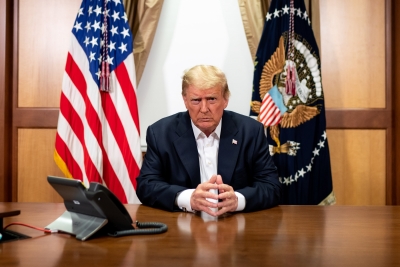Washington: The US administration has reached frameworks of bilateral trade agreements with Argentina, Guatemala, El Salvador and Ecuador, the White House said Thursday.
Under the agreements, the United States will remove reciprocal tariffs on certain items that cannot be grown, mined or naturally produced in the United States; and the four countries agreed to cooperate with the United States or open up their markets in multiple areas.
Washington will also remove reciprocal tariffs on textiles and apparel products from Guatemala and El Salvador, according to the agreements, Xinhua news agency reported. Notably, Argentina will provide preferential market access for US goods exports, including certain medicines, chemicals, machinery, information technology products, medical devices, motor vehicles and a wide range of agricultural products, according to the White House.
However, the United States will keep the tariff rate on most goods from Argentina, Guatemala and El Salvador at 10 per cent, and on most goods from Ecuador at 15 per cent, local media reported, citing senior US officials on a briefing call.
The White House expects to finalize the agreements in the coming weeks.
Reciprocal tariffs imposed by the US administration earlier this year have driven up inflationary pressures in recent months, with the US consumer price index in September up 3 per cent year on year.
The lowering or removal of reciprocal tariffs on items such as bananas, coffee and cocoa is expected to ease inflationary pressures in the country.
Last month, the IMF had lowered its forecast for Argentina’s economic growth in 2025 to 4.5 per cent, according to the latest World Economic Outlook report.
The new projection marks a downward revision from the 5.5 per cent GDP growth forecast issued in April and reaffirmed in July.
For 2026, the IMF expects Argentina’s economy to expand by four per cent, compared with the earlier forecast of 4.5 per cent.
Additionally, the financial institution has raised its projection for Argentina’s 2025 inflation to 41.3 per cent. For 2026, inflation is expected to ease to 16.4 per cent.
The IMF’s growth outlook is broadly in line with that of the World Bank, which had cut its forecast for Argentina’s 2025 GDP growth to 4.6 per cent.
Orissa POST- Odisha’s No.1 Trusted English Daily






































